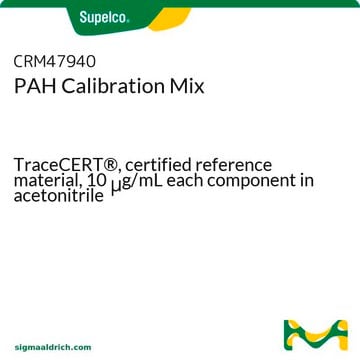About This Item
Recommended Products
grade
certified reference material
Agency
BCR®
manufacturer/tradename
JRC
technique(s)
HPLC: suitable
gas chromatography (GC): suitable
bp
525 °C (lit.)
mp
428 °C (lit.)
format
neat
storage temp.
2-8°C
SMILES string
c1cc2ccc3ccc4ccc5ccc6ccc1c7c2c3c4c5c67
InChI
1S/C24H12/c1-2-14-5-6-16-9-11-18-12-10-17-8-7-15-4-3-13(1)19-20(14)22(16)24(18)23(17)21(15)19/h1-12H
InChI key
VPUGDVKSAQVFFS-UHFFFAOYSA-N
Looking for similar products? Visit Product Comparison Guide
Analysis Note
BCR272
Legal Information
Storage Class Code
11 - Combustible Solids
WGK
WGK 3
Flash Point(F)
Not applicable
Flash Point(C)
Not applicable
Personal Protective Equipment
Choose from one of the most recent versions:
Certificates of Analysis (COA)
Sorry, we don't have COAs for this product available online at this time.
If you need assistance, please contact Customer Support.
Already Own This Product?
Find documentation for the products that you have recently purchased in the Document Library.
Customers Also Viewed
Our team of scientists has experience in all areas of research including Life Science, Material Science, Chemical Synthesis, Chromatography, Analytical and many others.
Contact Technical Service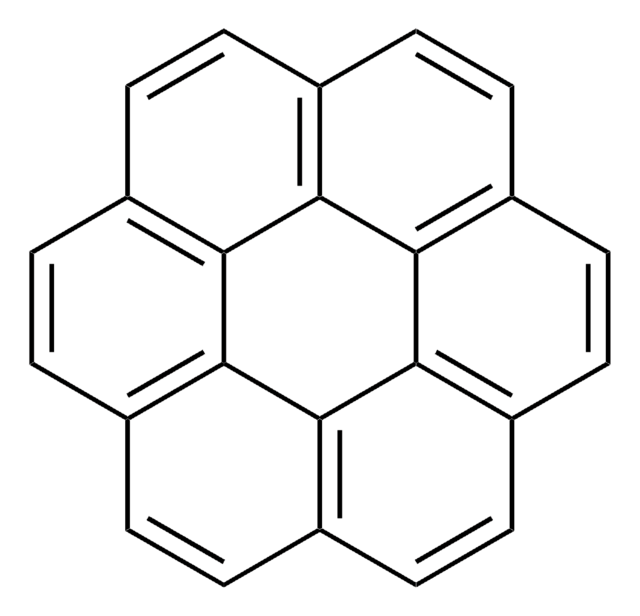
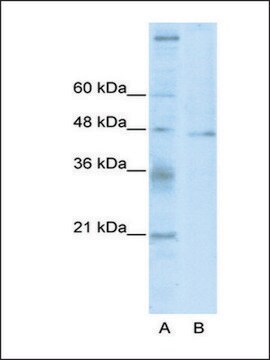
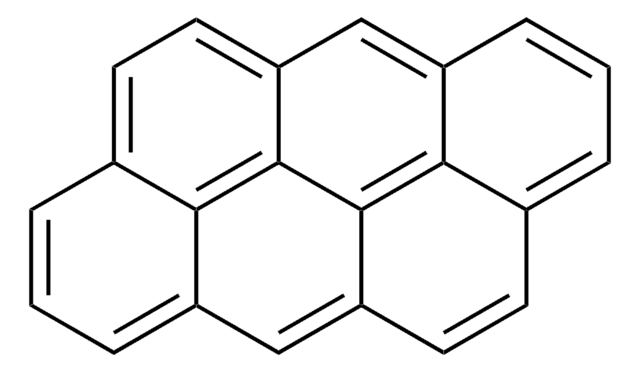

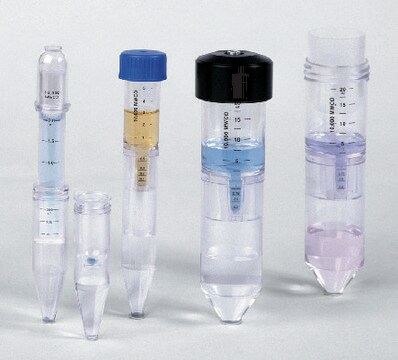

![Benzo[c]chrysene BCR®, certified reference material](/deepweb/assets/sigmaaldrich/product/structures/188/726/92d81261-76bd-4c6f-8130-ac0ebc22e52b/640/92d81261-76bd-4c6f-8130-ac0ebc22e52b.png)


